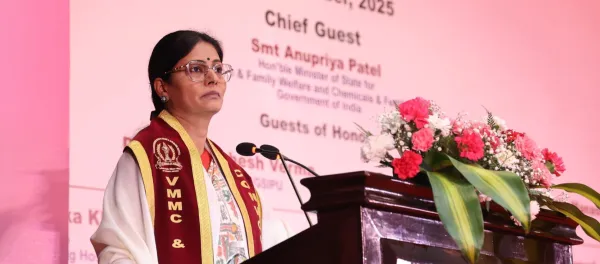Mayo Clinic Announces $1.9 Bn Expansion of Phoenix Medical Campus

The expansion will increase clinical space by 59% and integrate new medical technologies, aiming to improve patient care and accommodate rising demand for complex treatments.
Mayo Clinic has unveiled a $1.9 billion expansion plan for its Phoenix medical campus, marking the largest investment in the nonprofit’s history in Arizona.
The expansion will increase clinical space by 59% and integrate new medical technologies, aiming to improve patient care and accommodate rising demand for complex treatments.
The project, set to begin this year, is expected to be completed by 2031, with some components opening as early as the second year of construction.
The expansion includes a 1.2-million-square-foot addition featuring a new procedural building, a five-floor vertical and horizontal extension of the existing
Mayo Clinic Specialty Building, and a two-story indoor promenade wrapping around the front of the campus. Additionally, the project will introduce "care neighborhoods", a model that groups complementary clinical services together to streamline patient care.
Mayo Clinic President and CEO Gianrico Farrugia, MD., said, "Through this work, we are physically and digitally transforming healthcare and blurring the lines between inpatient and outpatient care to support Category-of-One healthcare for our patients, a Category-of-One workplace for our staff and to serve as a blueprint for the world," he said in the announcement.
Enhanced Medical Capacity and Job Growth
The expansion will significantly boost the campus’ medical capacity, including a 62% increase in MRI availability, a 44% rise in CT scanners, and the addition of 11 new operating rooms, a 31% expansion. The development will also add two new patient units, increasing the number of available inpatient beds by 48.
Mayo Clinic in Arizona CEO Richard Gray, M.D., highlighted the growing need for expanded infrastructure to meet the demands of specialized care patients. "The dramatic growth in our metropolitan area, state, and region has led to an escalating need for care of patients with complex medical conditions that are difficult to accommodate with our current technology and infrastructure. We continue to believe that Arizona is a great place to advance new cures, new collaborations and Mayo's distinctive model of care," he said.
Beyond increasing medical capacity, the expansion is also expected to bring more than 3,500 new jobs to the region. While the entire project is scheduled for completion in 2031, some sections are expected to be operational as early as the second year of construction.
Part of a Larger Nationwide Expansion
The Phoenix expansion is part of Mayo Clinic’s broader "Bold. Forward. Unbound." initiative, a strategic effort to modernize healthcare infrastructure across multiple states.
The initiative includes a $5 billion, six-year redevelopment of the flagship Rochester, Minnesota, campus, which is projected to contribute an estimated $2 billion annually to the local economy.
Additional projects under this plan include a $432 million hospital expansion in Jacksonville, Florida, expected to be completed by 2026, a $215 million investment in La Crosse, Wisconsin, which has recently wrapped up, and a $155 million hospital bed tower in Mankato, Minnesota that opened last year.
Mayo Clinic shows strong financial performance, reporting $17.9 billion in total revenues and a net operating income exceeding $1 billion in 2023.
In the first nine months of 2024, the nonprofit has reported $14.6 billion in revenue and a net increase of $2.1 billion, outpacing the previous year’s earnings.
Stay tuned for more such updates on Digital Health News































